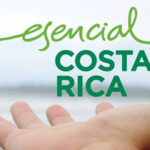
Sulfur Dioxide SO2
How is it used?
In the food sector, sulfur dioxide is identified by the term E220 and is used (and also considered to be avoided) as antimicrobial, antimycotic, inhibitor of the enzymatic browning process, antioxidant an as whitening agent for sugar and starch.
Is it harmful?
The ADI (acceptable daily intake) for sulfites is 0,7 mg per kilograms of body weight per day. It is essential to emphasize that is not the quantity contained within a single food to be harmful, but is the sum of the various quantities contained in the various products taken throughout the day, so it is necessary to moderate its use.
Sulfite damages are divided into four categories:
- 1 Vitamin alterations: sulfur dioxide and sulfites destroy thiamine and cyanocobalamin, hindering theirs assimilation (Group B vitamins: Bl and B12);
- 2 Weigh down our detoxifying system: these additives are eliminated by urine after being detoxified by the liver through an enzyme called sulfite oxidase. If the amount of sulfites is greater than our ability to eliminate them, headaches appear;
- 3 Allergic reactions and allergies. A lurking danger is represented by the possibility of allergies and asthmatic reactions also with severe respiratory manifestations. Rhinitis, eczema, hives and dysentery can be caused by sulfites. In these diseases, one of the toughest components is precisely the identification of the cause.
- 4 Interaction with cortisone medications. Do not underestimate the interaction with drugs, especially with cortisone that increase individual susceptibility to sulfates.
The use of sulfur dioxide for the preservation of fruits and vegetables is forbidden within the U.S.A.
In the United States, the Center for Science in the Public Interest lists the two food preservatives, sulfur dioxide and sodium bisulfite, as being safe for human consumption except for certain asthmatic individuals who may be sensitive to them, especially in large amounts. Symptoms of sensitivity to sulfating agents, including sulfur dioxide, manifest as potentially life-threatening trouble breathing within minutes of ingestion.
Within dried fruits?
As already noted, sulfur dioxide is used as a preservative in dried fruit, mainly because of its antimicrobial properties and because it maintains the brilliant color of the fruit, avoiding darkening.
The sulfur dioxide limit for dehydrated fruits, as reported in Reg. EEC n. 1333/2008, is maximum 2000 mg/l or mg/kg and varies according to the specific food; maximum levels are expressed as S02 and refer to the total quantity, available from all sources. Concentrations below 10 mg/kg or 10 mg/l are not taken into account.
Choosing dried fruit untreated with sulfur dioxide is definitely preferable as:
- We avoid exposition to an allergen. An immune response may occur due to an occasional or repeated exposure to an “allergenic” food, with variable symptoms for rapidity and intensity.
Possible symptoms are itching and swelling of the lips, palate and throat; nausea, vomiting, cramping, abdominal swelling, flatulence, diarrhea. In addition, skin reactions (such as eczema, asthma and rhinitis) or headache and migraine are frequent.
In rare cases, anaphylactic shock occurs: respiratory distress, sudden drop in blood pressure or loss of consciousness; it can be fatal.
- It is an additive, therefore a substance added to the product during processing.
Most industrial foodstuffs contain one or more natural or artificial additives. These substances are added for technical or commercial reasons and have no nutritional value. Additives can be used in order to make the food more colorful, to retain the original appearance and consistency until the time of consumption, to extend the shelf life.
- It is a synthetic substance, chemically realized and, while being accepted by the European Community for certain foods with maximum limits, it is not advisable an abundant consumption in a diet that focuses on healthy and natural eating. As a matter of fact, there is a whole market for healthy snacks in Europe, especially Germany.
FRUTA SANA is committed to produced dry fruit free of S02, with no additives.





